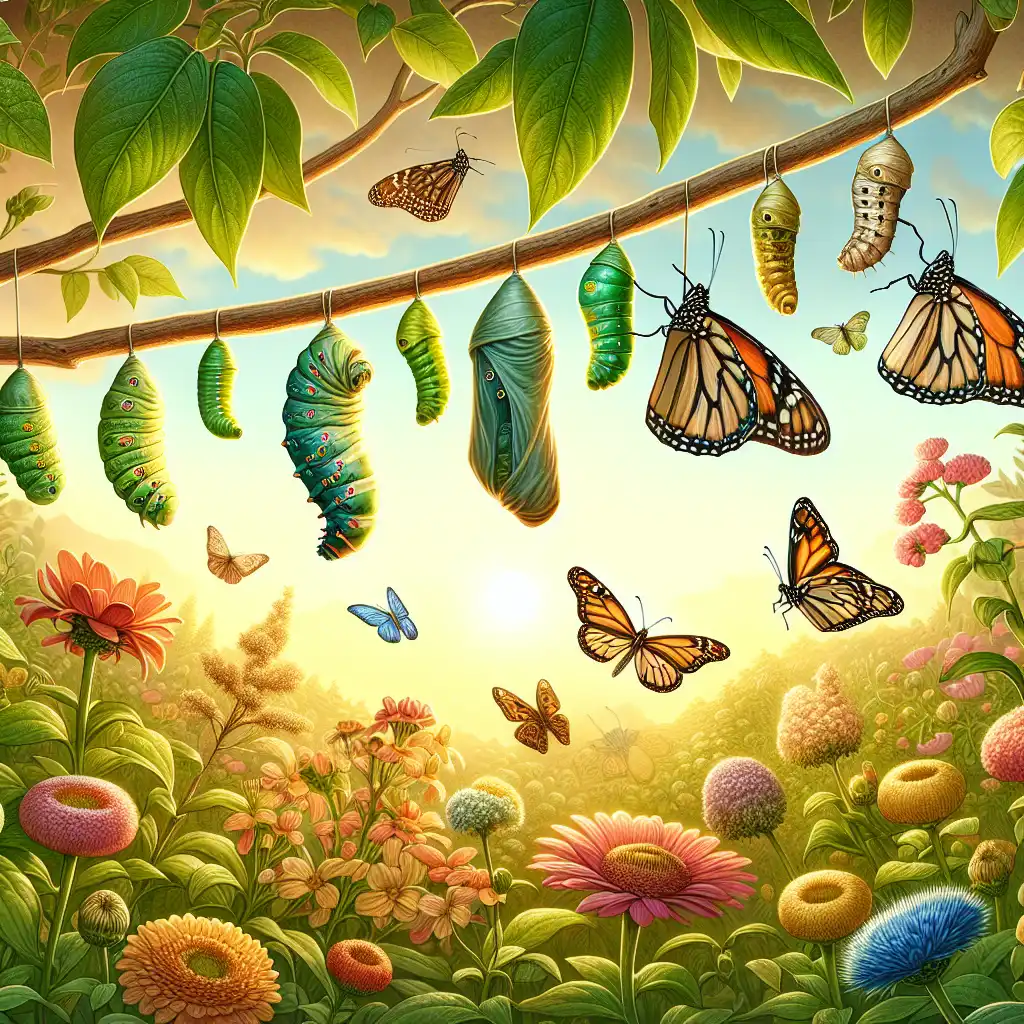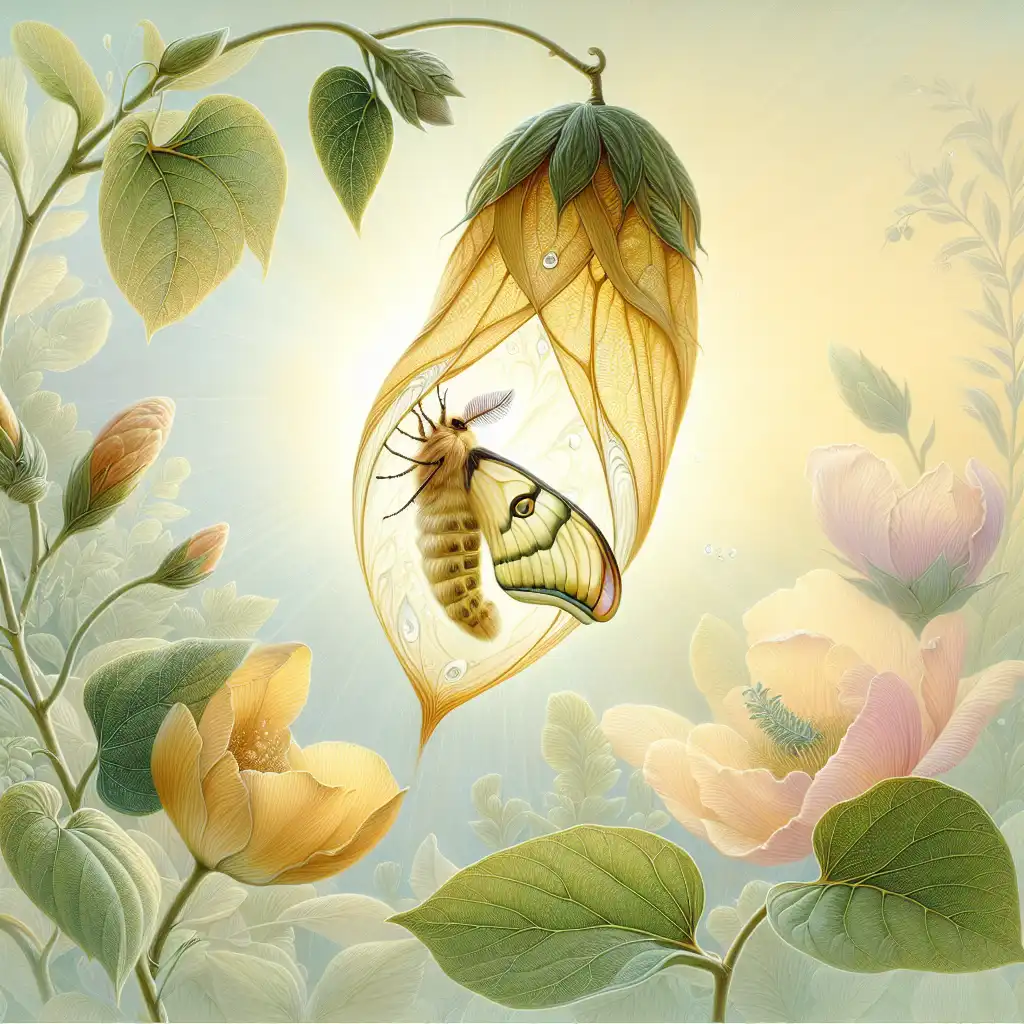
Pupa
Context: Biology
Use 'pupa' when discussing biology or the life cycles of insects, such as in science class.  In biology, we learned that the pupa stage is crucial for the metamorphosis of butterflies.
In biology, we learned that the pupa stage is crucial for the metamorphosis of butterflies.
Not Always Visible
'Pupa' often refers to a stage where the insect is enclosed and hidden, as in a cocoon.  The silk moth remains in the pupa stage inside its cocoon before emerging.
The silk moth remains in the pupa stage inside its cocoon before emerging.
Metamorphosis Process
The word 'pupa' signifies transformation, where the larva changes into an adult insect.  A pupa is not just resting; it's actively transforming into an adult moth.
A pupa is not just resting; it's actively transforming into an adult moth.